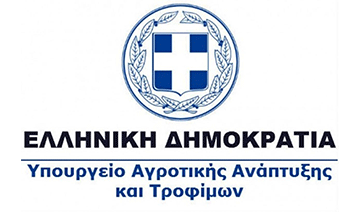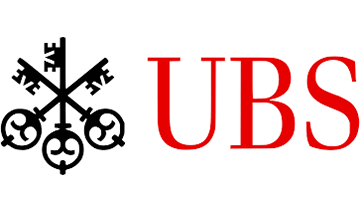Press Release
AgriBusiness Forum 2019
Program announcement & call for applications for participation to the Masterclass on agri-entrepreneurship
The agenda of the 2nd international AgriBusiness Forum under the topic “The future of agriculture in the digital era” to be held in Serres-Greece 1-2/11/2019, was presented during a press conference conducted by the Hellenic Ministry of Agriculture and Food on Wednesday September 18th 2019.
AgriBusiness Forum agro-technology premier event is held under the auspices of the Ministry of Agriculture and Food and focuses on advancing knowledge for the modernization & digital transformation of the agrifood value chain from seed to fork. Its intriguing agenda features 8 content driven sessions, oriented to the production, processing and distribution of sustainable and value-added agrifood products in the digital era.
AgriBusiness Forum 2019 topics promoting Precision Agriculture & Artificial Intelligence, Smart livestock farming,
Agri & Eco-tourism, Financial instruments, Plant biodiversity and certification in Greece, Policies for sustainable agrifood systems in the EU, Greece and the Balkans, Synergies between Academia-Research and Businesses.
AgriBusiness Forum spans across 5 modules integrated into 1 event, being: 1) a Masterclass on entrepreneurship, 2) a Challenge on innovation, 3) the ago-technology Conference, 4) a Field Visit and 5) Networking & Social activities
Among its 60 distinguished speakers are the Minister of Agriculture and Food, Makis Voridis and the leadership of the Ministry of Agriculture and Food, Minister of Tourism, Haris Theocharis, and Minister of Infrastructure and Transport, Kostas Karamanlis.
Furthermore number of specialists from Greece, Europe, US representatives of business, research and academia will address this year’s sessions, namely Geert Wilms (Netherlands LIB/ZLTO Producers Organization), Dr. Vassiliou (Yale University), Ambassador Christides (BSEC), Gregory Pfleger (US Consul General), Panos Theodorou (Eurobank), Effie Kokoreli (Interamerican), Alexandros Dimitrakopoulos (EIF), Augusta Vrachnou (EBRD), Eleni Maloupa (Hellenic Agricultural Organization-Demeter), Dr. Papadopoulos (American Farm School), Nikos Thymakis (Institute of Agronomic Sciences), Dr. Oudemans (Rutgers University), Dr. Vlachos (Laboratory of Statistics & Quantitative Analysis Methods AUTh) and many more.
AgriBusiness Forum 2019 is co-organized with the Regional Unit of Serres and Serres Chamber of Commerce, will be attended by 200 hi-level delegates (farmers, leading business, financial services, academia and the public sector), it partners with an extensive network of scientific organizations (ICBSS, Institute of Agricultural Sciences, HAO-Demeter, LASCM, A&M Texas, Rutgers, American Farm School, being many of them Agenda developers) and is sponsored by Interamerican, Eurobank, Alpha Bank, Karcher, Siris Microbrewery etc.
To boost entrepreneurship and innovation, a complimentary Masterclass will be offered to early stage agrifood innovative scaleups within the framework of the conference (29-31/10/2019). Masterclass 2019 is implemented by AgriBusiness Forum designated scientific partners being the Hellenic Agricultural Organization-Demeter, the Institute of Agronomic Sciences, the American Farm School and the Laboratory of Quantitative Analysis, Logistics & Supply Chain Management AUTh.
Agrifood innovative scaleups with passion to lift-off, disrupt the market, grow globally and create positive impact on agricultural systems are invited to apply to the Masterclass by Friday, October 4, 2019, through the AgriBusiness Forum official website (Masterclass). Masterclass participants will be offered free of charge attendance to 4 workshops, participation to the Challenge, the agro-technology conference, the field visit program, 5 meals and transportation (Serres KTEL) from Athens or Thessaloniki to Serres and vice versa.
Athens, 18 September 2019
Useful links
- Press-conference photo material: http://agribusinessforum.org/agribusiness-forum-2019/photo-library-2019/
- AgriBusiness Forum 2019 web site: http://agribusinessforum.org/agribusiness-forum-2019/
- Registrations conference 2019: https://www.eventora.com/en/Events/agribusiness-forum-2019
- Masterclass 2019: http://agribusinessforum.org/agribusiness-forum-2019/masterclass-2019/
- Workshops schedule 2019: http://agribusinessforum.org/agribusiness-forum-2019/abf19-training-schedule/
- To apply to the Masterclass: http://agribusinessforum.org/agribusiness-forum-2019/masterclass-2019/apply_to_the_masterclass-2019/
- AgriBusiness Forum 2018 website: http://agribusinessforum.org/agribusiness-forum-2018/
- 3 minutes video highlights from AgriBusiness Forum 2018: https://youtu.be/LfRC15nKzkM
Contact person: Ms. Christina Mangou, 2102845980, christina.mangou@geo-routes.com



